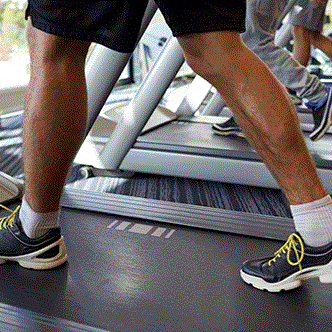
High cholesterol currently affects one-third of American adults, putting millions at increased risk of heart disease, heart attack and stroke. Because cholesterol gradually builds up in the arteries over time, most individuals will develop high cholesterol at some point in life. But simple steps like eating healthy and staying active can go a long way in preventing or delaying this potentially serious condition.
To learn more about the impact of regular exercise on cholesterol levels, researchers analyzed data from the Aerobics Center Longitudinal Study, which followed nearly 11,500 healthy men for 36 years. Throughout the study period, patients underwent blood tests and exercise treadmill testing, which helped assess their fitness levels.
After analyzing results, investigators found that the least fit men developed high cholesterol levels 15 years earlier than men with high fitness levels. However, the relationship between fitness and a delayed increase in cholesterol was strongest in young and middle-aged men. As authors explain, this suggests fitness is most effective in delaying high cholesterol earlier in life. By time men are older, regular exercise can only do so much to ward off high cholesterol, although fitness will help promote healthier cholesterol levels and a healthy heart.
Published recently in the Journal of the American College of Cardiology, these findings highlight the importance of regular exercise in reducing cholesterol. Not only can exercise help lower bad cholesterol called low-density lipoprotein (LDL), physical activity has been shown to increase the good type of cholesterol called high-density lipoprotein (HDL). The trick, however, is to engage in physical activity on a regular basis. Fitness is an indicator of regular exercise. The more consistently you exercise, the greater your fitness level will be.